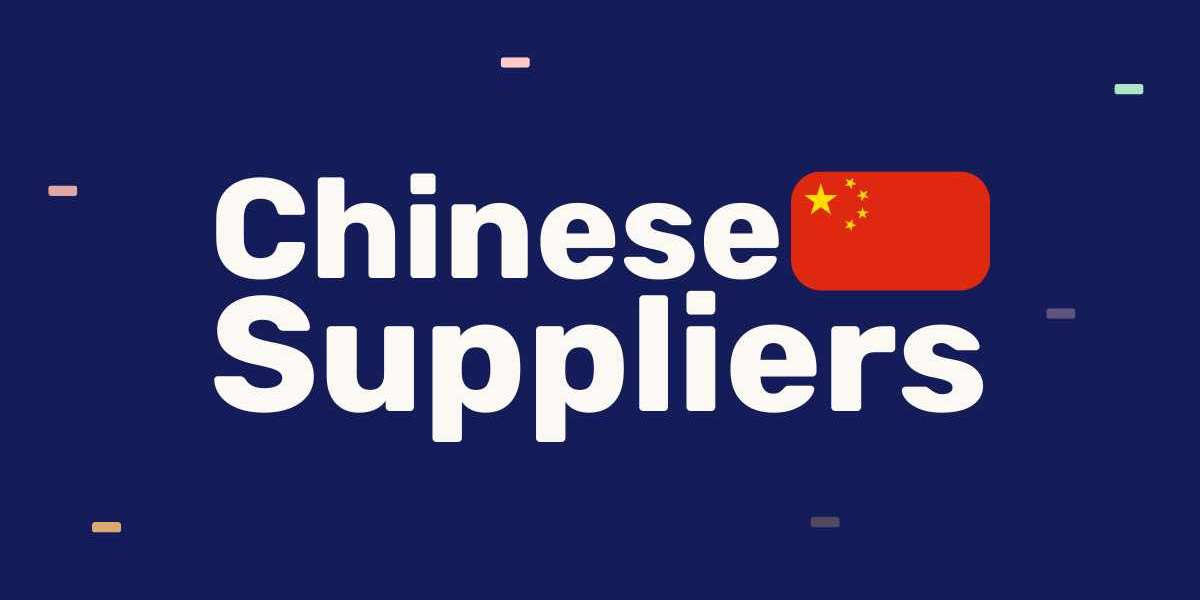In today’s global marketplace, China has become the heart of manufacturing and product sourcing. From electronics and textiles to furniture and automotive parts, millions of businesses around the world rely on at least one Chinese supplier to keep their operations running smoothly. But while sourcing from China offers cost savings and product variety, success largely depends on one thing — finding the right supplier.
This article will help you understand the importance of choosing the best Chinese supplier, how to identify reliable ones, and the benefits they can bring to your business.
1. Why Businesses Choose Chinese Suppliers
Over the past few decades, China has earned its reputation as the world’s manufacturing hub. The reason is simple — Chinese suppliers provide a perfect balance of cost efficiency, scale, and quality. Here are a few main reasons why global brands, startups, and e-commerce sellers all turn to China for sourcing:
Competitive Pricing: Chinese manufacturers can produce goods at a fraction of the cost compared to Western countries. Lower production costs mean higher profit margins for businesses.
Mass Production Capability: Whether you need 100 or 100,000 units, a Chinese supplier can scale production quickly.
Wide Product Range: From electronics to home goods, you can find suppliers for almost every industry niche in China.
Constant Innovation: China is known for rapid product development, offering new and updated versions of products faster than competitors elsewhere.
In short, if you want affordability, flexibility, and access to countless product types, working with a Chinese supplier can be a smart business move.
2. How to Find a Reliable Chinese Supplier
Finding the right Chinese supplier is more than just browsing Alibaba or Made-in-China. You need to ensure that your supplier is trustworthy, produces quality goods, and delivers on time. Here are some effective ways to identify a reliable one:
a. Use Verified Platforms
Websites like Alibaba, Global Sources, and DHgate have built-in verification systems. Look for “Verified Suppliers” or “Gold Suppliers” badges to minimize the risk of scams.
b. Check Business Licenses
A legitimate Chinese supplier will have a registered business license. You can request a copy or check it through local Chinese business directories.
c. Evaluate Communication
Good communication is key to a successful partnership. A reliable supplier will respond quickly, provide detailed answers, and show a genuine interest in your business needs.
d. Request Product Samples
Before placing a large order, always request samples. This helps you test product quality, packaging, and production capabilities.
e. Conduct Factory Audits
If possible, conduct a factory visit or hire a third-party inspection company to verify production standards and working conditions.
By following these steps, you can confidently choose a Chinese supplier that meets both your quality and ethical standards.
3. Key Benefits of Partnering with a Chinese Supplier
Once you’ve found a trustworthy partner, the advantages can be significant for your business growth. Let’s explore a few key benefits:
a. Cost Efficiency
The most obvious benefit is cost savings. A Chinese supplier typically offers lower prices because of affordable labor, raw materials, and efficient production systems.
b. Flexibility and Customization
Many Chinese suppliers offer flexible options — from customized product designs to personalized branding and packaging. This is perfect for e-commerce brands and startups that want to stand out in competitive markets.
c. Strong Supply Chain Network
China has a well-developed supply chain ecosystem. This means suppliers can easily access materials and components, ensuring timely production and delivery.
d. Rapid Turnaround Times
With advanced manufacturing technologies and high labor availability, Chinese suppliers can handle urgent or large-scale orders faster than many global competitors.
4. Common Challenges When Working with Chinese Suppliers
While the advantages are many, there are also challenges you should be prepared for when working with a Chinese supplier. Awareness of these issues helps you prevent costly mistakes.
a. Quality Control Issues
Not all suppliers maintain the same quality standards. Regular inspections, third-party audits, and quality agreements are essential.
b. Language Barriers
Although most suppliers have English-speaking sales teams, misunderstandings can still happen. Always use clear written communication and visual references.
c. Intellectual Property Concerns
When sharing product designs or brand ideas, make sure to sign an NDA (Non-Disclosure Agreement) to protect your intellectual property.
d. Shipping Delays
International logistics can face delays due to customs checks or global events. Always factor in extra time for delivery when planning inventory.
5. Tips for Building a Long-Term Relationship with Your Chinese Supplier
To ensure long-term success, treat your Chinese supplier as a business partner, not just a vendor. Here’s how:
Build Trust: Pay on time, communicate regularly, and show appreciation for good service.
Be Transparent: Share your goals and product expectations clearly.
Offer Consistent Orders: Regular business motivates suppliers to prioritize your production.
Visit the Factory: Meeting face-to-face (or virtually) builds stronger partnerships and shows commitment.
A strong relationship can result in better pricing, priority production, and exclusive product deals.
6. The Future of Chinese Suppliers in Global Trade
The role of Chinese suppliers in international trade continues to evolve. With China’s growing investment in technology, automation, and sustainable production, the quality gap between Chinese and Western manufacturers has almost disappeared.
Moreover, the rise of smart factories, eco-friendly materials, and AI-driven quality control has made sourcing from a Chinese supplier more reliable and innovative than ever before. Businesses that build strong partnerships now will benefit greatly from China’s continued manufacturing excellence in the years to come.
Conclusion
Partnering with the right Chinese supplier can be the turning point for your business. From cost savings and product variety to efficient production and long-term scalability, China offers unmatched sourcing opportunities.
However, success depends on doing proper research, verifying credibility, and maintaining strong communication. Once you find a reliable Chinese supplier, you’ll not only improve your bottom line but also build a sustainable supply chain that supports your growth for years to come.








